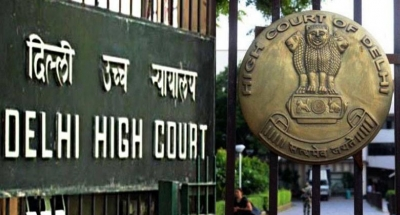New Delhi: The Delhi High Court on Monday extended the interim bail of businessman Sameer Mahendru by six weeks in a money-laundering case pertaining to the excise policy case, on medical grounds.
On June 12, the court had granted six weeks’ interim bail observing that he was suffering from diseases requiring immediate medical attention and post-operative care, and had asked him to surrender before the court before or at 5 p.m. on July 25.
While Justice Dinesh Kumar Sharma observed that interim bail can never be allowed to be made an evergreen process, he said that no further extension of interim bail shall be granted to Mahendru on the grounds cited in the instant application.
“Spinal injuries and surgeries are a serious issue and recovery from them takes a long time. In view of the detailed order passed on June 12 and the medical records furnished by the petitioner, further extension of interim bail by six weeks is granted,” the high court said.
The court further said that the order is not to set an example and is only based on facts of the case.
Apprising the court that the accused is not in good condition and has been advised bed rest, senior advocate Vikas Pahwa urged the court to extend the interim bail by six weeks and said that the Mahendru recently fell in the bathroom and suffered serious spinal injuries.
Opposing the plea, the Enforcement Directorate’s (ED) counsel said that the high court had earlier specifically directed him to surrender on July 25.
The ED counsel further said that Mahendru had visited its office on July 18, 21 and 22 on his own, without any summons being issued to him and this itself showed that he is able to walk and move freely.
The counsel further argued that an interim bail cannot be an evergreen process and a short cut method to escape the rigours of the Prevention of Money Laundering Act (PMLA).
The judge proceeded to say that this court has always taken a view that the right to life and right to live with dignity are important facets of the fundamental rights.
“An individual has a right to be treated and to take care of his health as per the medical advice. However, at the same time, medical grounds cannot frustrate the rigours of special laws like PMLA. In the special acts, the legislature in its wisdom has put up certain conditions for grant of bail and therefore, interim bail can never be allowed to be an evergreen process,” the court said.
During the last hearing, directing that the accused be released from jail immediately, Justice Chandra Dhari Singh had said that the health condition of a human being deserves utmost importance and right to health is one of the most significant dimensions of Article 21 of the Constitution.
Every person has a right to get himself adequately and effectively treated, the court had said.
“The fact that the petitioner is unable to sit, bend forward, and not even able to lift any weight suggests the infirmity on the part of the petitioner to carry out day-to-day routine activities and non-following the advice and the specialised treatment may lead to neurological damage to the petitioner,” it had added.
“Medical condition of the petitioner, coupled with the unblemished conduct and the grant of regular bail to the co-accused are reasons that are sufficient enough for this court to grant interim bail to the petitioner for receiving specialised treatment,” it had said.
However, Justice Singh had imposed certain conditions such as the accused should not leave the limits of the hospital and his house and also the country.
“The petitioner (Mahendru) is admitted to interim bail for a period of six weeks on his furnishing a personal bond in the sum of Rs 10,00,000 (Rs 10 lakh) with two sureties of the like amount to the satisfaction of the trial court concerned,” the court had ordered.
It was noted by the court that there is nothing against Mahendru on record showing that he misused previous interim bails granted and was also not found to be an absconder.
The ED had opposed it saying that Mahendru’s condition was found to be stable and that his pain had decreased significantly and was thus not entitled to be enlarged on medical bail.
Earlier, the ED had alleged that Mahendru is the kingpin and the focal point around which the entire criminal conspiracy developed and he was essential to the cartel’s establishment and ensuring the repayment of the kickback amounts.
Mahendru has been charge sheeted by Central Bureau of Investigation, too.
–IANS


Comments are closed.